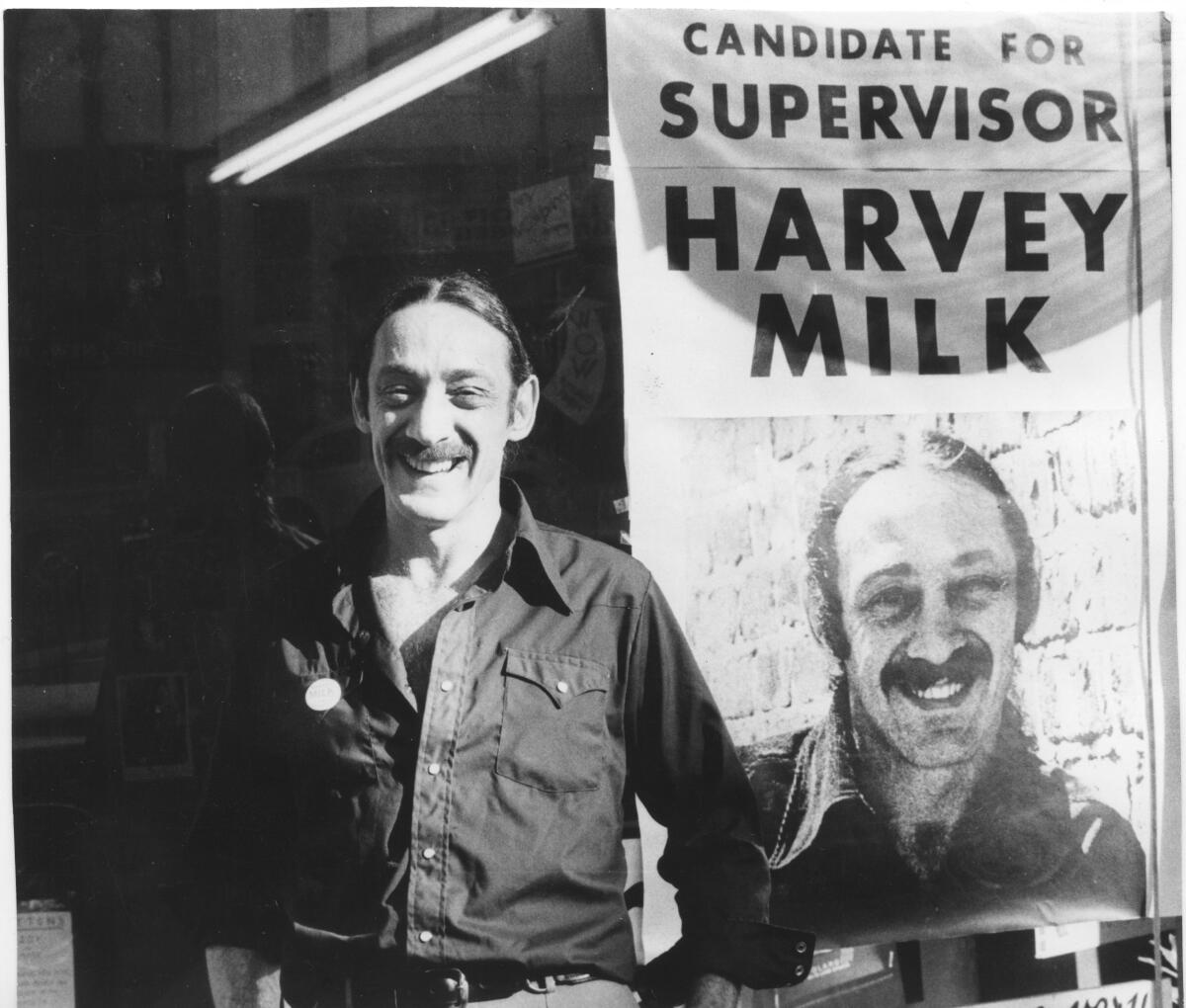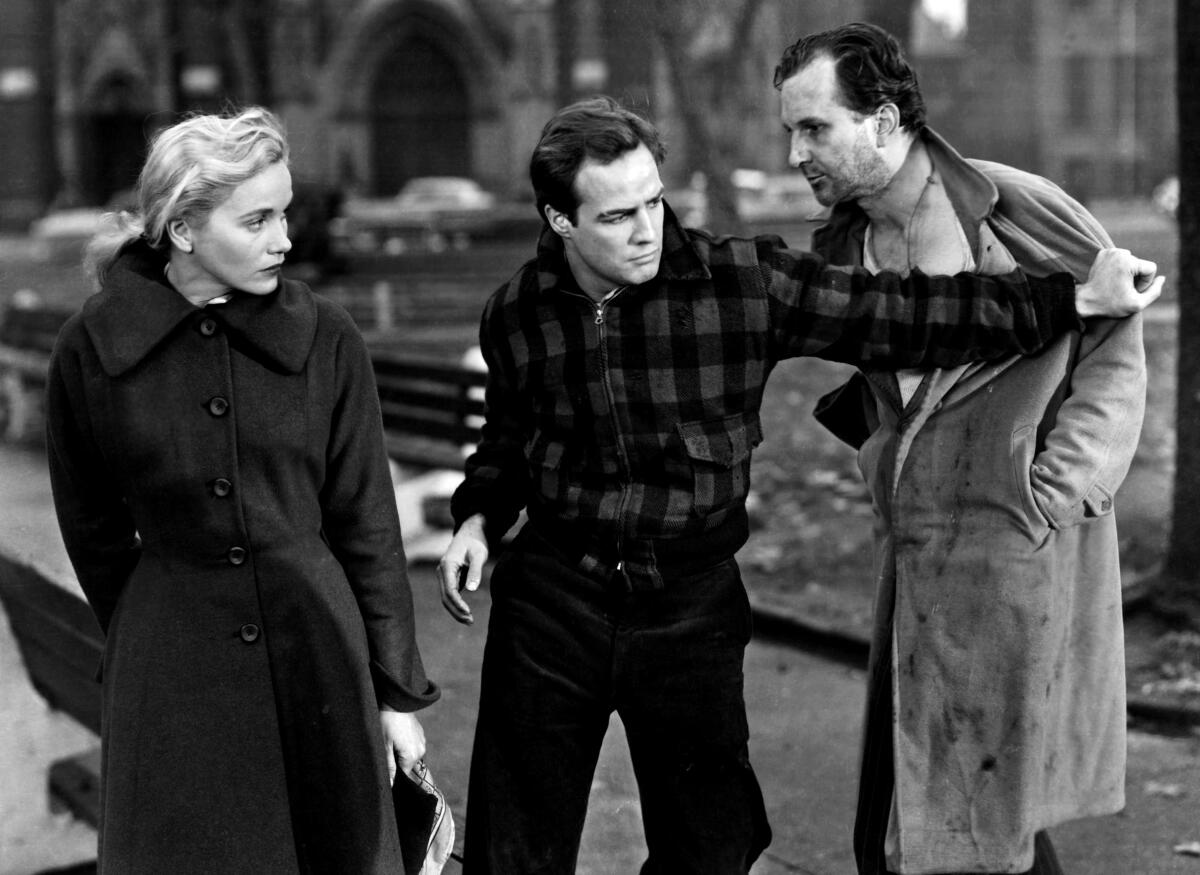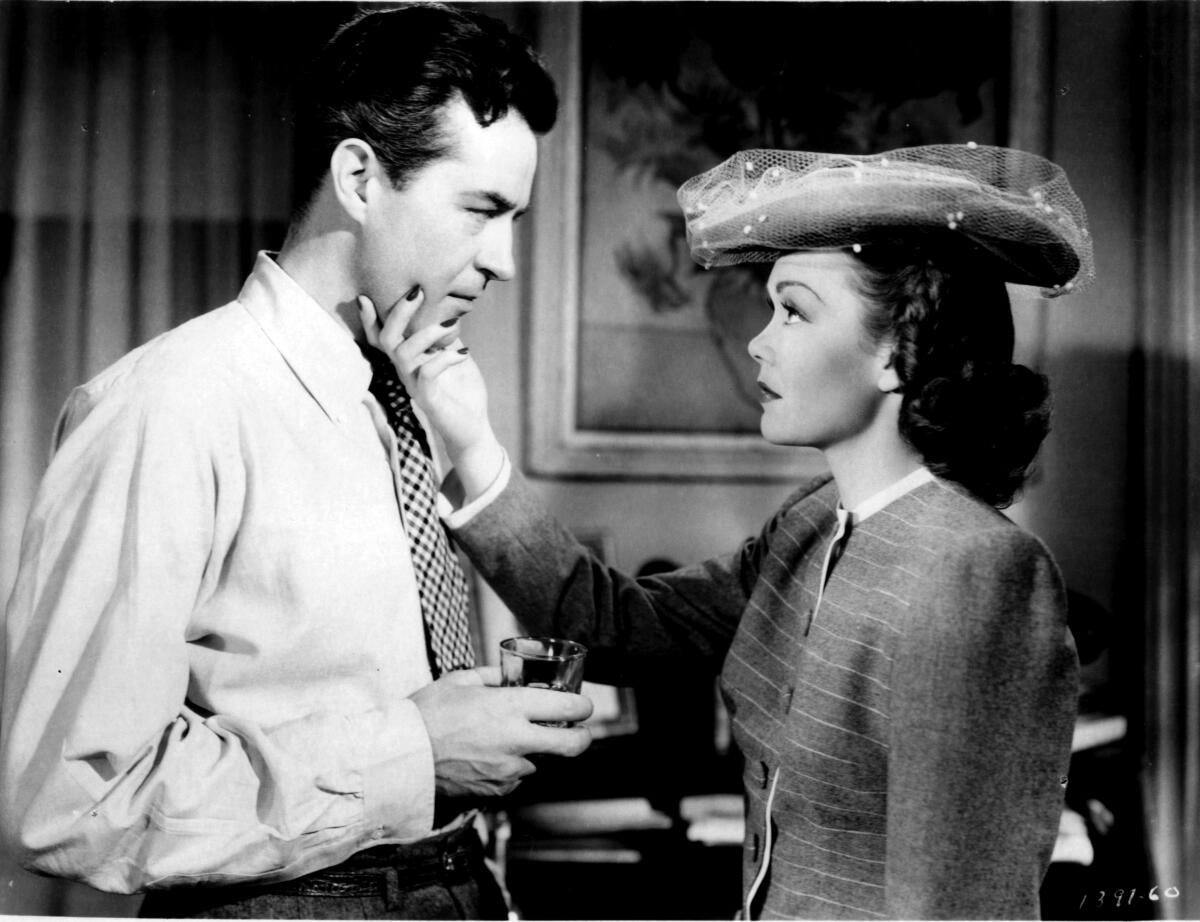The best clues as to what will take Oscar’s best picture come from the past
- Share via
Every year, The Envelope weighs the odds for each of the best picture nominees to win the gold by comparing them to previous Academy Award winners. (“Parasite” — it’s “The Sting” gone horribly wrong!) To analyze the elements of this season’s eight nominees, we looked at plots, themes, styles — even their comic relief. Are the resemblances we found enough to give the current picture a boost? Yeah, probably not. But we did find that this year’s crop, with it’s weightier story lines, often had us dipping into past documentary winners to find our corollaries.
“The Father” — “A Beautiful Mind”
Dementia wreaks havoc on its victims’ minds. “The Father” wreaks havoc on our concept of it, by turning the illness into a mystery thriller. Can Anthony (Anthony Hopkins) believe what he sees? Can we? For such an inventive look at mental decline, we turn to 2002’s winner, “A Beautiful Mind,” and the tricks our mind can play on us when our cognition is altered. 2012’s foreign-language film “Amour” also shares the particular tragedy of this loss.

“Judas and the Black Messiah” — “The Times of Harvey Milk”
The heart-wrenching, infuriating story of Black Panther Fred Hampton’s (Daniel Kaluuya) betrayal by his comrade William O’Neal (LaKeith Stanfield), and his subsequent assassination by the U.S. government, has a number of filmic forebears. Betrayal has a hand in 1985’s winner, “Amadeus,” 2007’s “The Departed” and both “Godfathers.” But 1985’s winning documentary feature brings it home, with its story of another great revolutionary figure betrayed and murdered by a close colleague.
“The Trial of the Chicago 7” — “Fog of War”
If 1957’s nominee “12 Angry Men” had won, it would make this one a lot easier. Eight enraged revolutionaries! But, alas, “The Bridge on the River Kwai” won that year, which does nothing to illuminate this film’s chances. The film looks at the travesty of a trial against the men who staged a Vietnam War protest at the 1968 Democratic Convention, which descended into a riot. It is a biting indictment of a government that will try to crush opposition at all costs, not unlike 2004’s documentary winner “Fog of War,” in which former Defense Secretary Robert McNamara dissects his role in the Vietnam War and WWII.

“Mank” — “On the Waterfront”
1941’s “Citizen Kane” would be a ringer for this behind-the-scenes look at that film’s screenwriter Herman Mankiewicz (Gary Oldman), but as “Mank” fans know, that film won only for its screenplay. Instead, we turn to 1955’s “On the Waterfront.” The stink of corruption permeating New Jersey’s dockworkers union in “Waterfront” wafts over California’s politics in “Mank.” Both feature a lovely blond heartbroken heartbreaker. And behind the scenes on “Waterfront,” independent producer Sam Spiegel was reported to be as much of a thorn in the side of legendary screenwriter Budd Schulberg as Mercury Theatre manager John Houseman apparently was to Mankiewicz. Then let’s throw in a dash of the panache of 1937 winner “The Great Ziegfeld.” Both men lived grand lives, gambled recklessly with hearts and money, and left an indelible impression in their wake.
“Minari” — “Parasite”/”Terms of Endearment”
In this quintessentially American tale of the immigrant experience, Jacob (Steven Yeun) struggles to give his family a better life and nearly destroys everything in the process. Last year’s victor, “Parasite,” has only the slimmest thematic similarity — downtrodden family hustles to survive against intense economic odds — but it is the only other film with an Asian cast and director to have won the best picture Oscar. Could we throw in “Terms of Endearment” for a couple of precocious kids and a live-wire grandmother? We could try.
“Nomadland” — “Down and Out in America”
Fern (Frances McDormand) is an unhoused wanderer, assessing the challenges and freedom of a nomadic way of life. We are immersed in that world along with her and a largely nonprofessional cast of real nomads, in a film that straddles narrative and documentary genres. So again we turn to a winning documentary for comparison with 1987’s “Down and Out in America,” which takes an unsparing look at the brutal effects of Reaganomics on the working poor and homelessness in the U.S.
“Promising Young Woman” — “Unforgiven”/”American Beauty”
Carey Mulligan stars as the prophetic Cassandra in an elaborately constructed revenge movie that blends comedy, tragedy, romance and any number of genres in between. Good luck finding a best picture winner starring a female on such a mission. Instead, we offer a mash-up of 1992’s “Unforgiven,” for its story about exacting retribution for a terrible injustice against a woman, and 1999’s “American Beauty,” for its stylistic look at the emptiness, violence and unexpected joy we are all capable of feeling.

“Sound of Metal” — “The Lost Weekend”
This searing film centers on Ruben (Riz Ahmed), a metal drummer and recovering addict who loses his hearing and seemingly everything that gives his life meaning. He reluctantly joins a rural deaf rehab community, and even more reluctantly, starts coming to terms with being deaf. His battles, and his denial, call to mind that classic of the ravages of alcoholism, 1945’s “The Lost Weekend.” Although Ruben doesn’t return to substances as Ray Milland’s character does, his addictive nature does come into play as he seeks a fix and gives up (or sells) almost everything in the process. And as with that mid-century melodrama, by the end of the film, he manages to reach the grace of acceptance. That’s when life can begin.
More to Read
From the Oscars to the Emmys.
Get the Envelope newsletter for exclusive awards season coverage, behind-the-scenes stories from the Envelope podcast and columnist Glenn Whipp’s must-read analysis.
You may occasionally receive promotional content from the Los Angeles Times.









